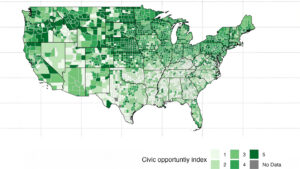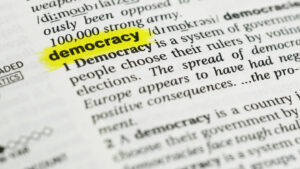Featured Projects
-

-

-

-

-

-

-

-

Led by SNF Agora faculty member Yuen Yuen Ang, the UCI offers a detailed look at corruption by categorizing its different forms. The updated UCI 2.0 aims to refine anti-corruption strategies and highlight inequality using expert surveys.
Leading the Coversation
Yuen Yuen Ang
Alfred Chandler Chair Professor of Political Economy
In the Polytunity Project, Yuen Yuen Ang, a professor of political economy at Johns Hopkins University, reframes today’s disruptions—often labeled the “polycrisis”—as a generational opening for deep transformation in global thought. Its intellectual foundation is AIM (adaptive, inclusive, moral) political economy, which Ang has applied across her scholarship.


